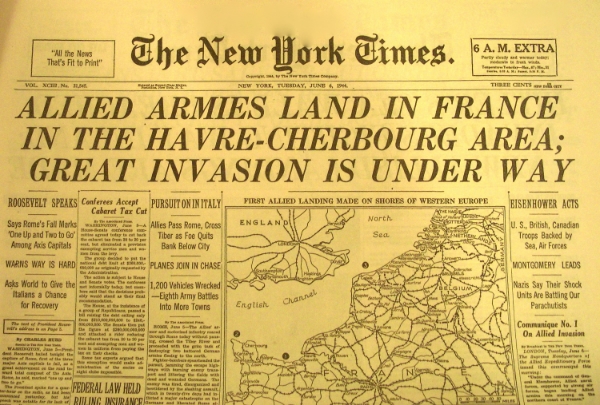It was the beginning of 1944. The Germans had developed doodlebugs (V-1 Flying Bomb) and rockets. The first was a pilotless plane carrying a ton of explosives. They launched from Belgium. You could look up and see and hear them roar by, then cut off, dive down and explode. They gradually got worse. Fighter planes would shoot a lot down over the sea.
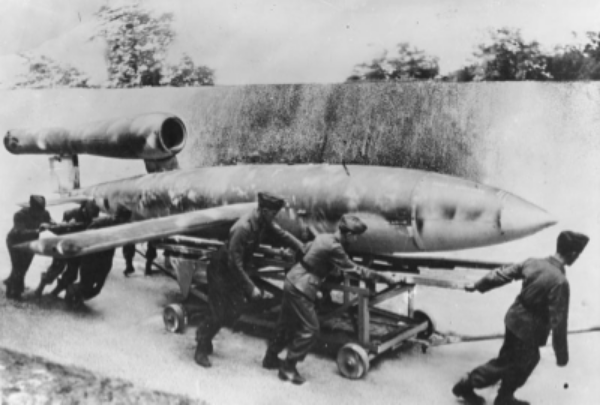
V-1 Flying Bomb
One morning, to be exact, July 15, 1944, it was 8:20 a.m. and I realized I was going to be late for work. I lived about a mile away, so I ran most of the way to the store. When I reached the bottom of the hill the warnings went off. I looked up to see a man standing right on the corner of a high building waving a red flag. I knew it was bad. A lady I knew, who was about 35 years old, ran with me. I was a lot faster than her and was making my way to an air-raid shelter at the back of the store. By then the noise was colossal – everything was shaking. The bomb was screaming down; I felt like I was in a sand storm. Two women tried to grab me inside, but I had one place on my mind. I headed for the entrance of the air-raid shelter. When it hit the ground I knew nothing. A big wooden door to the dairy saved my life by splintering over me; then down came all the brick walls. I was buried alive for seven hours. People inside the shelter walked over me. A very little man was the first to realize someone was underneath all that debris. He dug with his hands until he had my head out. My girlfriend, who had been covered with vinegar from a barrel, said it was awful to see. I kept going unconscious, going in and out. My face was all blown out of shape; my eyes, nose and ears were full of dirt. I was covered in blood. I had most of my clothes blown off and all I had on was a camiknicker. This little man, only about 5 feet 2 inches tall, carried me out. He was the manager of the shoe shop. My friend said it was a startling sight. She said he was so brave. He was brave because everything was smoking and more walls could have come down on him. I was found about 3 p.m. in the afternoon. I met this brave man a year and a half later and I was able to thank him in person. It was a tearful reunion.
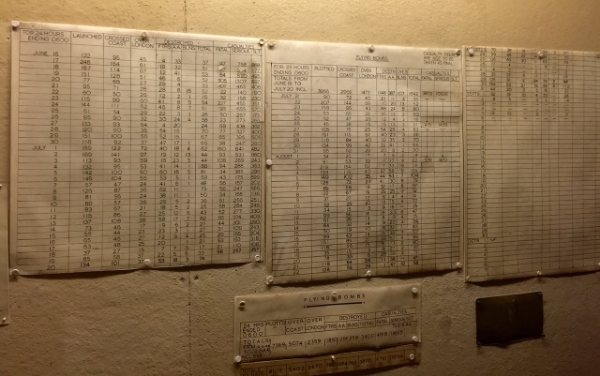
This is Churchill’s war room record of the V1 & V2 rocket attacks, which includes the bombing of July 15, 1944.
I was taken first into the factory first aid and then by ambulance to the hospital. My poor mother was trying to find me. The lady I was running with earlier was blown to bits. She could not run as fast as me. I had several broken bones, a double fractured skull, and lots of shrapnel pitted in my body. It was years later that I realized that most of my broken bones were never set. The lump on my head behind my right ear got bigger all the time. At first I had bad headaches, and I was also slightly deaf. I spent about three days in the hospital. They were so busy – I guess my broken bones got overlooked. I was scared too, because I was on the top floor of the hospital.
My mother had a sister in North Wales. She sent a telegram to tell her about me. She sent back and insisted we go stay with her. My mother had to take two months off work. We went to London and then by train to Rhyl. It was a beautiful seaside town right on the Irish sea. I was there ten months. My poor mom had to go back alone to keep her job, but she visited as much as she could. I loved my Aunty Lily. She was so kind to me. But her daughter Joy was terribly jealous of me and made me cry a lot.
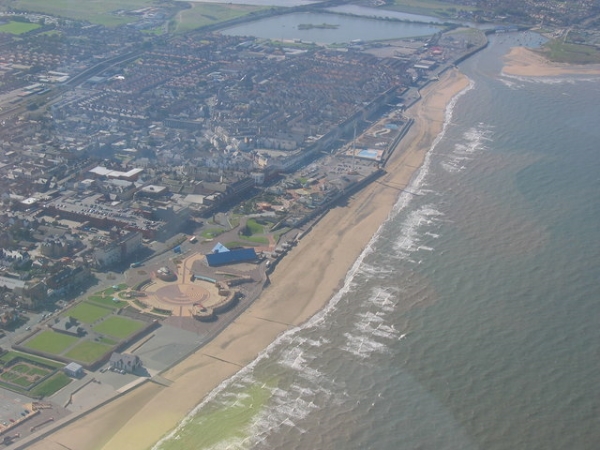
Rhyl
On the way to my aunt’s, when we were on the bus to the city of London, a bus conductor took one look at me and said “I bet you’ve been messing about with a doodlebug.” It was a good joke. One of my eyes was split – I had to have it stitched, and all the white part was full of blood. It took nine months for me to recover. My face went from black and blue to pink and then yellow. I was sixteen and three months years old, so I couldn’t wait until I looked normal.
About this time, the Germans had developed an even more devastating rocket, called the V-2. You never heard it until it hit the ground. It would kill two hundred people at once, over a circumference of one to two miles. I was worried for my mom, being alone.
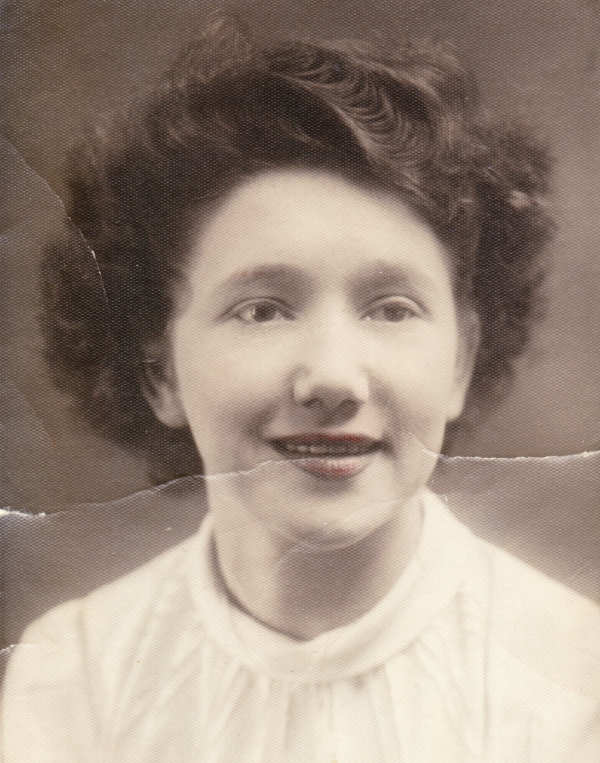
I had a nice time at my Auntie’s. There were no bombing raids there, so we did fun things like going to the beach for picnics.
In April of 1945, I returned home. The war was almost over. In early 1945 the Americans, Canadians and British invaded Normandy (the storming of which was called D-Day). They freed the French. Germany had been bombed to bits. Being a girl with no dad at home or brother, I really didn’t know in great detail what was going on. I remember thinking, “Wow, clothes will be off coupons soon.”
